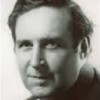“In society,” M… would say, “you have three sorts of friends: those who love you, those who couldn’t care less about you, and those who hate you.”
«Dans le monde, disait M…, vous avez trois sortes d’amis: vos amis qui vous aiment, vos amis qui ne se soucient pas de vous, et vos amis qui vous haïssent.»
Nicolas Chamfort (1741-1794) French writer, epigrammist (b. Nicolas-Sébastien Roch)
Products of Perfected Civilization [Produits de la Civilisation Perfectionnée], Part 2 “Characters and Anecdotes [Caractères et Anecdotes],” ch. 8 (1795) [tr. Parmée (2003), ¶343]
(Source)
(Source (French)). Alternate translations:“In the world,” remarked some one to me, “you have three kinds of friends: the friends who love you, the friends who do not trouble their heads about you, and the friends who hate you.”
[tr. Hutchinson (1902)]M— said, "In society you have three kinds of friends: your friends who are fond of you, your friends who don’t care either way, and your friends who detest you."
[tr. Merwin (1969)]"In the world," said M..., you have three sorts of friends: the friends who love you; the friends who don't care about you, and the friends who hate you."
[tr. Pearson (1973)]You have three sorts of friend in polite society, M— used to say. Friends who are fond of you; friends who are unconcerned about you; friends who detest you.
[tr. Dusinberre (1992)]"There are three sorts of friends in high society," M— used to say. "Friends who are fond of you, friends who don't care about you, and friends who detest you."
[tr. Dusinberre (1992), "Sampler"]
Quotations about:
acquaintance
Note not all quotations have been tagged, so Search may find additional quotes on this topic.
Celebrity: the advantage of being known by those who do not know you.
[Célébrité: l’avantage d’être connu de ceux qui ne vous connaissent pas.]
Nicolas Chamfort (1741-1794) French writer, epigrammist (b. Nicolas-Sébastien Roch)
Products of Perfected Civilization [Produits de la Civilisation Perfectionée], Part 1 “Maxims and Thoughts [Maximes et Pensées],” ch. 2, ¶ 135 (1795) [tr. Mathers (1926)]
(Source)
(Source (French)). Alternate translations:Celebrity: the advantage of being known to those who do not know you.
[tr. Hutchinson (1902)]Celebrity: the advantage of being known by those who do not know you.
[tr. Merwin (1969)]Being a celebrity gives you the advantage of being known to those not of your acquaintance.
[tr. Pearson (1973)]Celebrity: the advantage of being known by those who do not know you.
[tr. Dusinberre (1992)]Celebrity: the advantage of being known by people who don't know you.
[tr. Parmée (2003), ¶ 111]Celebrity: the advantage of being recognized by people who don't know you.
[Siniscalchi (1994)]
The only real argument for marriage is that it remains the best method for getting acquainted.
The choicest garb, the sweetest grace,
Are oft to strangers shown;
The careless mien, the frowning face,
Are given to our own.
We flatter those we scarcely know,
We please the fleeting guest,
And deal full many a thoughtless blow
To those who love us best.Ella Wheeler Wilcox (1850-1919) American author, poet, temperance advocate, spiritualist
Poem (1896-10), “Life’s Scars,” st. 3, Frank Leslie’s Popular Monthly, Vol. 42, No. 4
(Source)
Originally published in Frank Leslie's Popular Monthly, Vol. 42, #4 (1896-10)
The prestige you acquire by being able to tell your friends that you know famous men proves only that you are yourself of small account.
W. Somerset Maugham (1874-1965) English novelist and playwright [William Somerset Maugham]
The Summing Up, ch. 2 (1938)
(Source)
ACQUAINTANCE, n. A person whom we know well enough to borrow from, but not well enough to lend to. A degree of friendship called slight when its object is poor or obscure, and “intimate” when he is rich or famous.
I have always found that so-called bad people gain in one’s estimation when one gets to know them better, and good people decline.
Georg C. Lichtenberg (1742-1799) German physicist, writer
Aphorisms, Notebook G, #25 (1779-83) [tr. Hollingdale (1990)]
(Source)
I never met a man I didn’t like.
Will Rogers (1879-1935) American humorist
Motto
(Source)
Rogers' first use of the phrase in writing comes from "Letters of a Self-Made Diplomat to His President," Saturday Evening Post (1926-11-06):I bet you if I had met him and had a chat with him, I would have found him a very interesting and human fellow, for I never yet met a man that I dident like. When you meet people, no matter what opinion you might have formed about them beforehand, why, after you meet them and see their angle and their personality, why, you can see a lot of good in all of them.
(Misspelling of "didn't" in the original.) Rogers was writing of his regrets over not having met Leon Trotsky while visiting the Soviet Union. The article was incorporated into a book Rogers published about the trip, "There's Not a Bathing Suit in Russia & Other Bare Facts, ch. 4 (1927).
Two other early references, the first from his "Weekly Article" column (1930-06-29):You know I have often said in answer to inquiries as to how I got away with kidding some of our public men, that it was because I liked all of them personally, and that if there was no malice in your heart there could be none in your "Gags," and I have always said I never met a man I didn't like.
And from a speech at a Boston church, the same month:I’ve got my epitaph all worked out. When I’m tucked away in the old graveyard west of Oologah [Oklahoma], I hope they will cut this epitaph -- or whatever you call them signs they put over gravestones -- on it, 'Here lies Will Rogers. He joked about every prominent man in his time, but he never met a man he didn’t like.'
That reference was picked up in AP news stories, and Rogers used the phrase for the rest of his life.
More info on Rogers' motto and the above quotations: here, here, and here.







